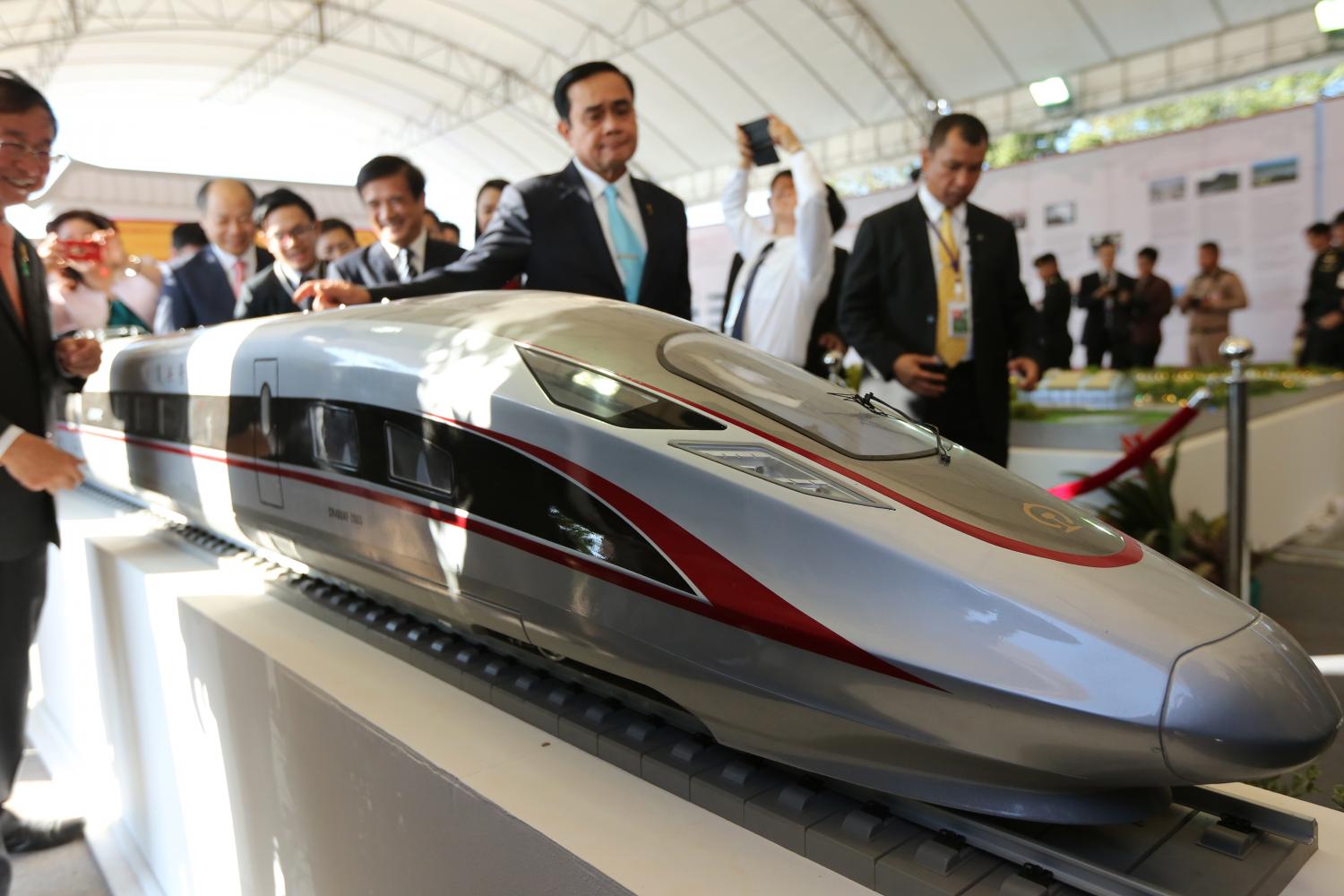
The government is accelerating the construction of the second phase of the Thai-Chinese high-speed rail linking Nakhon Ratchasima to Nong Khai and the double-track rail route linking Khon Kaen to Nong Khai worth a combined 330 billion baht as it aims to reduce logistics costs to 11% of GDP by 2027 from 13.8% in 2021.
According to Danucha Pichayanan, secretary-general of the National Economic and Social Development Council (NESDC), the meeting of the committee handling logistics development chaired by Deputy Prime Minister Supattanapong Punmeechaow on Oct 10 agreed the two rail development projects need to be sped up to help reduce logistics costs.
The Transport Ministry is likely to propose action to the cabinet for approval soon, he said.
The second phase of the Thai-Chinese high-speed train project, stretching 356 kilometres from Nakhon Ratchasima to Nong Khai, is worth 300 billion baht, while the 167km double-track route linking Khon Kaen to Nong Khai is worth 29.7 billion baht.
The Nakhon Ratchasima-Nong Khai route provides a connection for trains travelling from Thailand to Laos and onward to Kunming in China.
Having already passed an environmental impact assessment, the second phase is expected to be completed about 3-4 years after the first phase, or between 2029 and 2030.
The first phase of the project involves the construction of a high-speed train route from Bangkok to Nakhon Ratchasima.
The first phase is estimated to cost 179 billion baht, with the budget provided by Thailand.
The railway, stretching 250km from Bang Sue in Bangkok to Nakhon Ratchasima and comprising six stations, is expected to open in 2026.
According to Mr Danucha, for the second phase the Transport Ministry reported to the committee the ministry has reached agreement with the Laotian government on joint investment for the construction of a new bridge across the Mekong River to specifically accommodate the high-speed trains linking Nong Khai and Vientiane.
Details of the joint investment in the new bridge will be discussed later with officials from Laos and China.
In a related development, he said the committee also approved a draft of the fourth national logistics development plan (2023-27), which aims for Thailand to become the gateway to the region; e-commerce connectivity; and digital connection development and business capability enhancement of Thai entrepreneurs.
The new plan is expected to reduce logistics costs from 13.8% of GDP in 2021 to 11% before the end of the 13th national economic and social development plan (2023-27).
According to Mr Danucha, thanks to the economic recovery, the government's myriad stimulus measures, a rebound in tourism and strong exports, logistics costs are expected to improve, accounting for 12.9-13.3% of GDP in 2022.